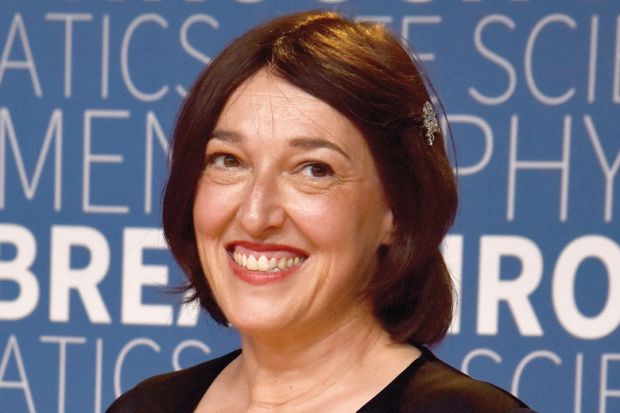An expert in the life cycle of cells, whose work is crucial to understanding conditions ranging from cancer to Down’s syndrome, has died.
Angelika Amon was born in Vienna in 1967. Although she was always fascinated by zoology, a film about chromosome segregation she saw in secondary school focused her attention specifically on the internal workings of the cell. She studied genetics at the University of Vienna (1989) and went on to a PhD in its Research Institute of Molecular Pathology (1993) where she began to make major contributions to the analysis of yeast.
While working on her doctorate, Professor Amon became interested in fruit fly genetics and successfully applied to become a postdoctoral researcher at the Whitehead Institute – affiliated with the Massachusetts Institute of Technology (MIT) – under its now director, Ruth Lehmann. She moved to the US, in 1994, for the rest of her career; she launched her own lab as a Whitehead fellow in 1996 and joined the MIT faculty in 1999, eventually becoming Kathleen and Curtis Marble professor in cancer research, attached to what is now the Koch Institute for Integrative Cancer Research.
Alongside further work on yeast, Professor Amon threw crucial new light on the phenomenon of aneuploidy – an abnormality in the number of chromosomes – and its consequences for metabolism and cellular error-repair systems. This is highly significant for understanding both cancer and conditions such as Down’s syndrome, and the work led Professor Amon to a position as co-director of MIT’s Alana Down Syndrome Center when it was set up in 2019.
Other research projects illuminated the ways that cells grow, divide and age, and how larger cells lose the ability to proliferate. Professor Amon was still posting new findings about stem cells within a week of her death.
She was acclaimed by Professor Lehmann as “an inspiring leader”, notable for “her fearlessness [in calling out] sexism and other -isms in our community” as well as “her trailblazing science”.
“Angelika existed in a league of her own,” added Kristin Knouse, one of her former graduate students who is now a Whitehead fellow. “She had the energy and excitement of someone who picked up a pipette for the first time, but the brilliance and wisdom of someone who had been doing it for decades. Her infectious energy and brilliant mind were matched by a boundless heart and tenacious grit. She could glance at any data and immediately deliver a sharp insight that would never have crossed any other mind.”
Professor Amon died of ovarian cancer on 29 October and is survived by her husband, Johannes Weis, and two daughters.
Register to continue
Why register?
- Registration is free and only takes a moment
- Once registered, you can read 3 articles a month
- Sign up for our newsletter
Subscribe
Or subscribe for unlimited access to:
- Unlimited access to news, views, insights & reviews
- Digital editions
- Digital access to THE’s university and college rankings analysis
Already registered or a current subscriber? Login








